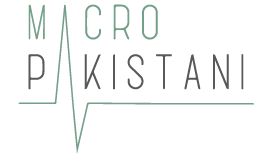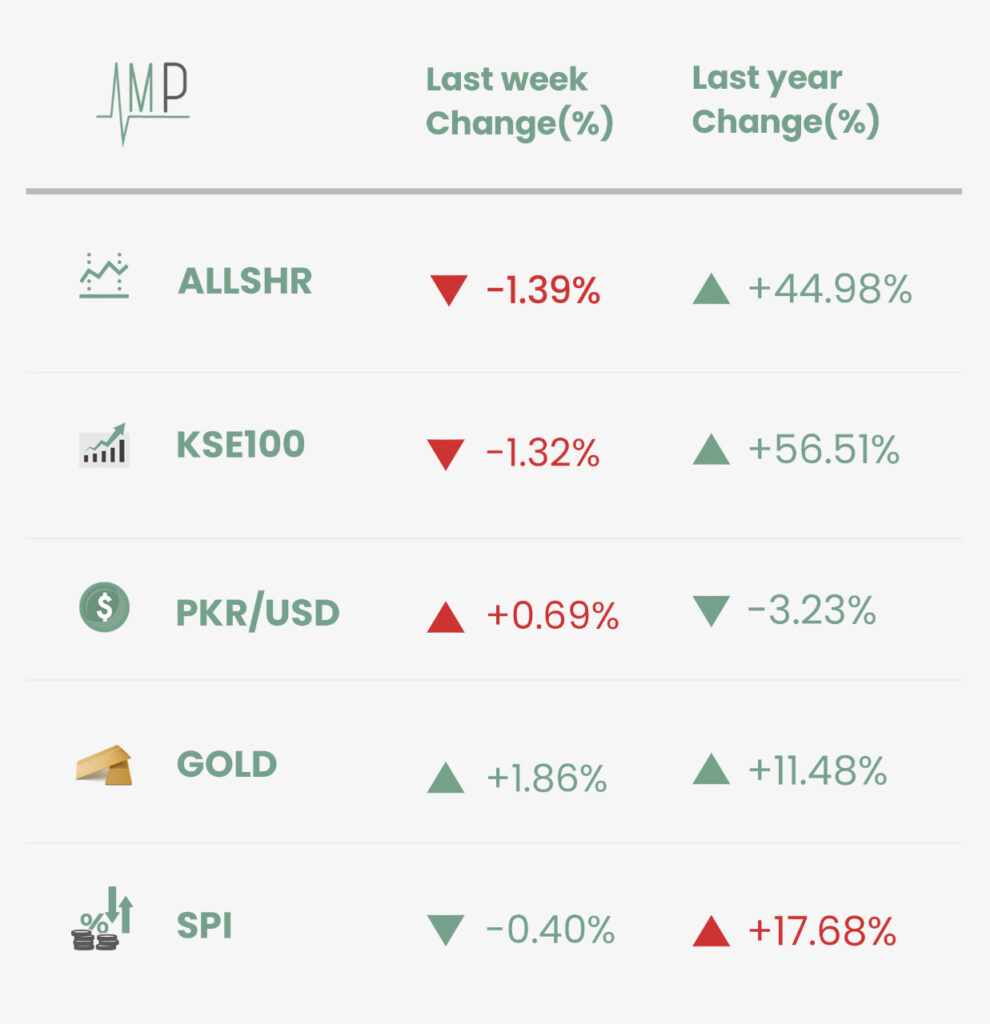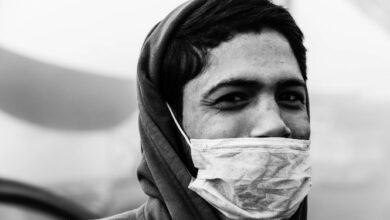The latest National Human Development Report 2020 is making the rounds these days as it not only highlights the level of inequality in Pakistan, but also elite capture estimated at almost 7% of GDP. Macro Pakistani found it most interesting that the report also had breakups for GDP by province and region. Sindh has the highest per capita GDP in Pakistan, in both urban and rural areas in Pakistan. Urban Sindh alone, has a per capita GDP of USD 7,547 (adjusted for PPP), which is higher than the South Asian average of USD 6,500. With Karachi, the business hub of the country, in urban Sindh, this is probably not surprising. However, for rural Sindh to also be the highest in rural areas of Pakistan is quite interesting. In fact, the report found that rural Sindh’s per capita income is actually higher than urban Balochistan’s!
Busting the Myth that Private Schools are for the Elite only in Pakistan?

By Zainab Qureshi and Ayesha Razzaque
Over 40% of school going children in Pakistan attend private schools. Almost 90% of these private schools charge less than PKR 800 in fees per month. Going by average student performance, private schools provide a high quality of education too. They are also the single largest employer of women across Pakistan, employing an estimated 900,000 female teachers. Hence, private schools are not just for the elite in Pakistan.
The Learning and Educational Achievements in Pakistan Schools (LEAPS) research program has found that while Pakistan’s overall learning outcomes are poor, private school children perform better than their public school peers. The gap in outcomes between private and public school students is significantly larger than the gap between rich and poor students. To find out what obstacles hold back certain schools from performing better, the LEAPS team has conducted extensive research. Their study has found useful insights on themes such as information asymmetries such as simply providing report cards to parents of students improves average test scores of all schools in a community.
Providing report cards to parents improves average test scores in all schools
Impact of report cards on learning outcomes by school type
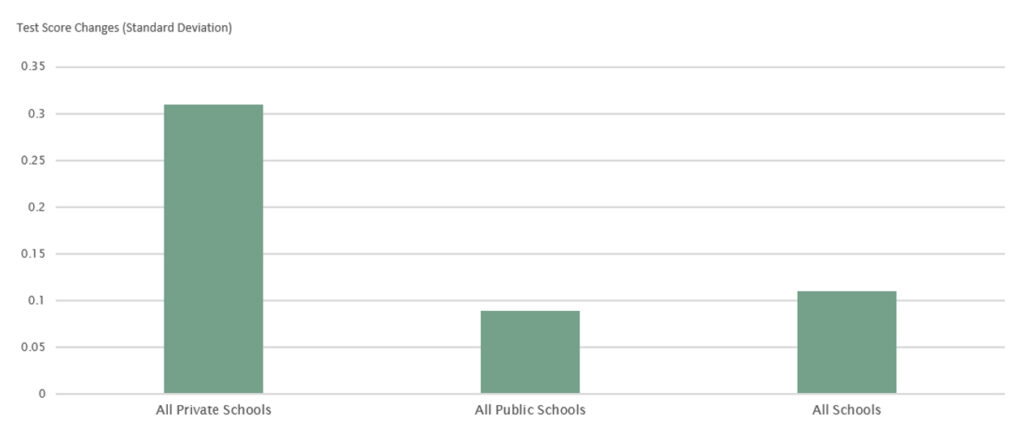
Source: LEAPS
LEAPS work spanning a decade shows that private schools could innovate more if they had larger financial resources, affordable quality enhancing inputs and access to more information. To tackle these constraints, they have launched Ilm Exchange, a digital education marketplace. Read the full article to learn more about their work and what their new platform aims to achieve.
The KSE-100 lost 1.32% this week due to surging COVID-19 cases in the country, which could lead to lockdowns and a slowing economy. With weak foreign inflows from FDI recorded this week, the exchange rate also lost significant value. It is down to PKR 153.87/USD, its lowest value since last month. However, investor unease has helped international and local Gold prices rise again. Similar to the last waves of the pandemic, safe haven investors rush to gold as economic uncertainty rises.
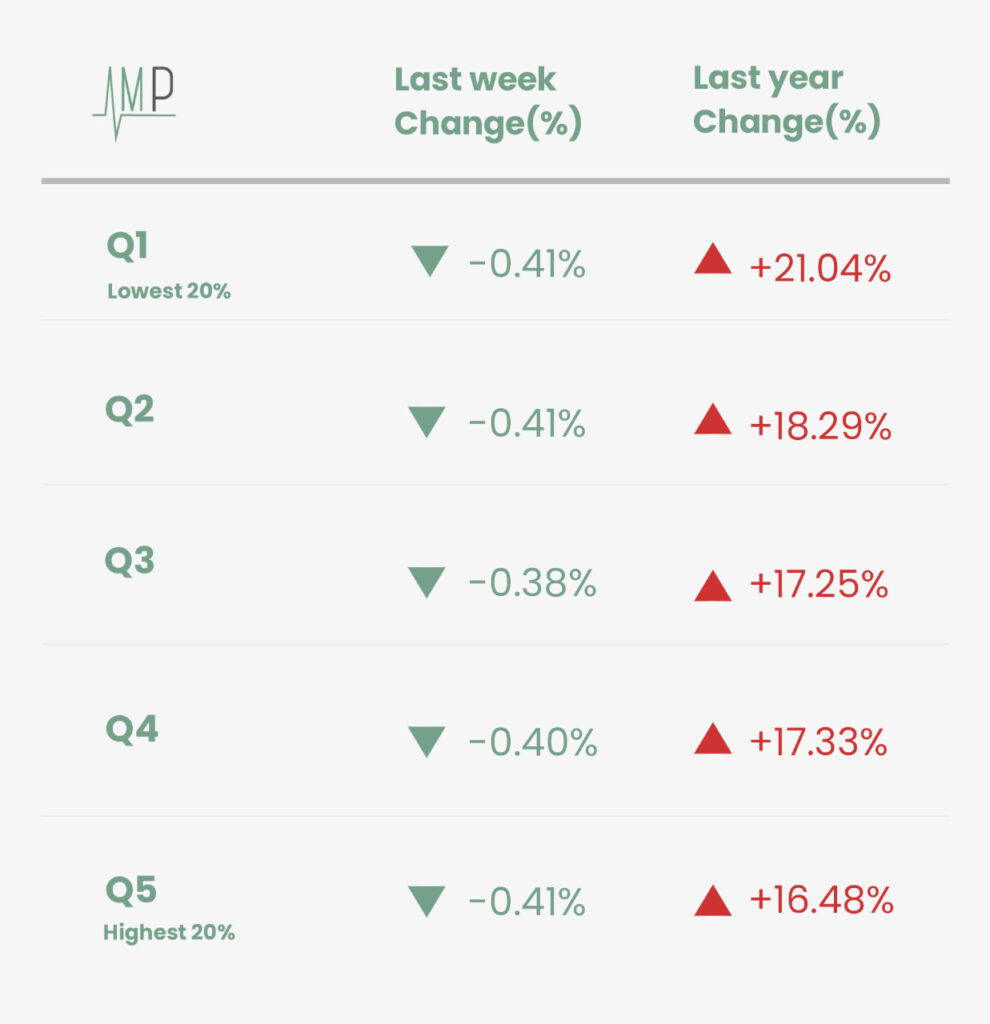
The annual change in Sensitive Price Index is up to 17.68% as compared to 18.89% last week. The whole country experienced lower inflation on annual basis, but the lowest 20% of the population still faced inflation of over 21%. Weekly inflation is down due to a decrease in prices of some essential food commodities as well as drop in fuel prices. Prices of key food commodities such as Wheat (+6.93%) and Potatoes (+1.94%) continued to rise from last week. However, a significant drop in prices of Tomatoes (-30.22%), Onions (-8.12%), Eggs (-5.81%) and Sugar (-2.68%) managed to control inflation this week. Additionally, prices of fuels such as Petrol (-1.58%) and Diesel are down, meaning both food and energy inflation should be trending down in the coming month.
What Else We’re Reading (Local)
- Ministry of Energy to submit new refinery policy that will provide incentives to new and existing refineries for upgradation and modernization (Business Recorder)
- Policy attention from a singular focus on revenue mobilization should be shifted to rationalizing the expenditure side of the equation in Pakistan (Tribune)
- Once Pakistan has aligned CPEC with its foundational objective of improving its external competitiveness and enhancing exports, it should then leverage it as a conduit for east-west regional connectivity (Dawn)
What Else We’re Reading (International)
- Cotton Crisis destroys jobs tied to Pakistan’s biggest cash crop, with production in current fiscal year set to tumble to the lowest level in about 3 decades (Bloomberg)
- The US returned to international climate leadership with ambitious plans to halve greenhouse gas emissions by 2030, roughly on par with the EU (Financial Times)
